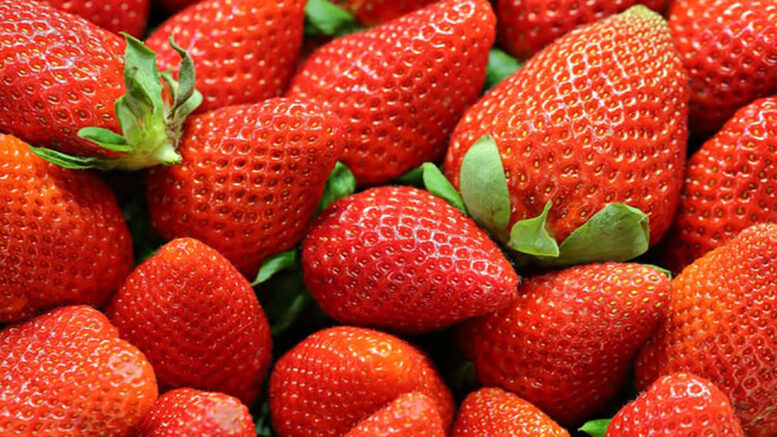Making food decisions can occasionally be challenging for those who have diabetes. The secret to staying as healthy as possible when you have diabetes is to choose foods that work together to generate the optimum performance for your body. There are many different foods that can react differently to blood glucose levels.
One fruit that people frequently wonder about is strawberries. It’s a fruit, but it also contains natural sugar. Nevertheless, strawberries are also regarded as a slow-release carbohydrate, which implies that after eating them, blood sugar levels won’t rise or fall.
Advantages

One of nature’s delights is the inherent goodness of a strawberry. It is juicy, enough sweet to require no additional sugar, and undeniably tasty. In actuality, strawberries have additional advantages.
To begin with, they are abundant in fiber, vitamins, minerals, and antioxidants. In addition to exercise and adhering to medical advice, strawberries can play a significant part in a balanced diet.
Given that strawberries have a GI of 41, it is well known that eating a diet low in GI is crucial for diabetics.
Antioxidants found in strawberries can prevent illness and increase insulin sensitivity. The fruit is also high in vitamins, folate, potassium, and fiber. The immune system is strengthened by vitamin C, while normal tissue growth is aided by folate.
Regarding diabetes, strawberries have a slow-releasing carbohydrate that doesn’t raise your blood sugar levels right after eating. Instead, the blood sugar is better managed because to this gradual release.
As a result of its glycemic index of 41, which is lower than the recommended value of 55, strawberries are widely regarded as low-GI foods. This merely indicates that your blood sugar levels won’t be impacted by the strawberry’s sugar content.
Incorporating Strawberries

In actuality, strawberries are a remarkably adaptable fruit. There are no taste or flavor issues when adding them to any meal.
They can be put to oatmeal or yogurt for breakfast to give it a delicious boost.
They can be added to a salad around lunchtime to provide some more flavor and color.
After dinner, they can be eaten as a snack or as a topping for salads or a scoop of cottage cheese.
You can add strawberries to almost any dessert to give it an extra flavor boost without adding any extra sugar.
Read Also: Diabetes and Ragi
Boundaries
Then, how many strawberries a day can a diabetic consume? If things have already been combined in or added to other dishes, how do you count them? One way to look at it is that since strawberries release carbohydrates gradually, it is acceptable to infer that the amount is not a precise measurement or count.
It is advised that you consume no more than eight strawberries per day if you were to sit down and eat them unprocessed. Roughly one and a half cups of strawberries every day would be the equal of this sliced or diced up.
Dangers
Of course, there are potential hazards associated with all foods. Whether or not you have diabetes, eating too many strawberries can cause upset stomach, diarrhea, bloating, heartburn, or even acid reflux.
But always keep in mind that there are always going to be far more advantages to eating strawberries than disadvantages. The potential heart health effects of anthocyanins are another advantage for diabetics. Weight loss or weight management may benefit from strawberries. This is because strawberries have a low sugar and carbohydrate content.
Strawberries’ fiber contributes to maintaining regular bowel movements. Strawberries are rich in antioxidants and anti-inflammatory compounds that support both arthritis treatment and tissue healing. Eating strawberries may help lower the risk of several malignancies and some disorders linked to obesity, according to some research.
It’s general knowledge that fruits low in sugar are suitable replacements for other goodies or snacks you might want to grab. This implies that you could grab a strawberry or two and snack if you had a stock of them in your refrigerator. By satisfying your sweet desire with these two easy snacks, you can avoid cravings for other sweets like cookies, cake, chocolates, and candies.
Because of this, it’s a safe alternative that can possibly aid in weight maintenance or loss as needed. This may lead to the need for an additional caution. Desserts that contain strawberries may not necessarily indicate that the dessert is healthier as a result of the strawberries. This is untrue. Because desserts are high in sugar and carbs, they should only be consumed in moderation.
This is analogous to saying that a dessert made with dark chocolate is healthier than one made with milk chocolate. You must consume the food in moderation regardless of the presence of chocolate. There might be some additional health benefits from strawberries, but not enough to offset the amount of sugar or carbs in the other treats.
Healthy glucose levels may be maintained with the aid of strawberries. For a diabetic, they are also safe to eat every day. as long as the upper limit is adhered to and the amount you eat is moderated.
A note of the total amount of strawberries used to the recipe should be made whenever they are combined with other items. The majority of medical doctors would advise against adding the strawberries until shortly before you intend to consume the meal. You can only keep an eye on the quantities you eat each day if you proceed in this manner.
The exact reason why some people develop diabetes and others do not is unknown. Some people are adamant that being overweight could play a significant role. A increased chance of developing diabetes is associated with pre-diabetes and family history. Fruit does naturally contain sugar, but when consumed in moderation as part of a balanced diet, it is unlikely to be harmful to your health.
Fruit’s natural sugars are an excellent replacement for granulated sugar or artificial sweeteners. It is beneficial to include strawberries in your regular diet in part. However, overindulging in fruit carries the same risk. It is possible for blood glucose levels to rise even with natural sugar.
For this reason, they provide guidelines for the recommended daily intake. Intentionally consuming more of any food might raise blood sugar levels and result in additional problems.
These restrictions may also apply to people without Diabetes Type 1 or Type 2. Everything contributes to the proverb “Too much of a good thing.” The fact that dried fruit is not much healthier than fresh fruit is another caution that needs to be heeded. In actuality, it contains more sugar than fresh fruit. This implies that anyone with diabetes who starts eating dried fruit as a snack under the mistaken belief that it is healthful is taking a risk. There will be significant blood glucose rises as a result of the dried fruit.
This can lead to weight gain, dental problems, and yes, even sugar surges for people without diabetes.
The quantity of fruit, like strawberries, that can be consumed varies for people who work out. This is a portion of the dialogue that the patient with diabetes and their healthcare team should be having on a regular basis. It can be found that the patient can consume more strawberries than is advised if they exercise.
In summary
Diabetes is a lifelong condition, however it can be sufficiently corrected to require less medicine than the patient is now taking. This is not to say that you won’t need medicine or that your diabetes will go away.
Your diabetes will never go away, even if your blood glucose levels do finally drop back to prediabetic levels. You may need to take less medicine overall, but you will still need to pay close attention to what you eat, how much you eat, and how much activity you get.
The human body and its internal mechanisms are enigmatic entities. Not every problem has a concrete solution. The diabetic’s best course of action is to adhere to the medical care team’s instructions and consume a nutritious diet as recommended by the registered dietician.
Make sure to get in touch with an expert who can respond to your inquiries if you have any. Simply said, when someone is accountable and takes charge of their own life and well-being, they consume a nutritious diet, exercise frequently, and adhere to all other advice and recommendations from the team.
Diabetes may seem to dominate you because of all the items you are unable to eat, but in reality, you are the only one who can control your diabetes because you are the only one who can decide what you eat and how much of it.


Be the first to comment on "Can a Person with Diabetes Eat Too Many Strawberries?"